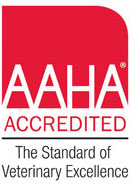Educational Articles
-
Ferrets are carnivores and cannot handle a diet containing more than 4% fiber. A good quality ferret diet should contain 32-40% protein and 10-15% fat. There are several good commercial dry foods for ferrets.
-
The goal of feeding growing kittens is to lay the foundation for a healthy adulthood. Portion feeding is recommended to maintain a good body condition. Proper nutrition is critical to the health and development of kittens, regardless of breed, and it directly influences their immune system and body composition. An optimal growth rate in kittens is ideal; it is a slow and steady growth rate that allows the kitten to achieve an ideal adult body condition while avoiding excessive weight and obesity. Growing kittens need higher amounts of all nutrients in comparison to adult cats, but excess energy calories and calcium can create serious problems. Preventing obesity must begin during the weaning stage and continue through to adulthood and old age. Together with your veterinarian and veterinary healthcare team, you can help your kitten grow into as healthy of an adult cat as possible.
-
The goal of feeding growing puppies is to lay the foundation for a healthy adulthood. Proper nutrition is critical to the health and development of puppies, regardless of breed, and it directly influences their immune system and body composition. An optimal growth rate in puppies is ideal; it is a slow and steady growth rate that allows the puppy to achieve an ideal adult body condition while avoiding excessive weight and obesity. Growing puppies need higher amounts of all nutrients in comparison to adult dogs, but excess energy calories and calcium can create serious problems. Together with your veterinarian and veterinary healthcare team, you can help your puppy grow into as healthy of an adult dog as possible.
-
The preferred basic diet for guinea pigs is unlimited amounts of Timothy or other low-calcium hay, supplemented with smaller amounts of a commercial, high-fiber, Timothy-hay based guinea pig pellets. The diet should be supplemented with a variety of fresh, well-washed, leafy greens or colored vegetables; especially those high in vitamin C. Guinea pigs cannot manufacture their own vitamin C, therefore it is important that guinea pigs receive a vitamin C tablet or liquid vitamin C directly by mouth every day. Provide fresh clean water in a sipper bottle and check the tube for blockages each day.
-
Over 60% of cats in North America are either overweight or obese, so paying attention to the balance between activity and calorie intake is important. Nutrient formulation and portion control are the two most important aspects of weight control. Once you have chosen a formula and have calculated a reasonable daily portion based on calorie density, the best way to stay on track and prevent unwanted weight gain is to combine portion control with regular, formal weigh-ins.
-
Dogs and cats have different nutrient requirements, which is why separate commercial pet foods are made for each species. Even pets of the same breed or body weight have unique calorie needs, so pet parents should feed them in separate bowls to avoid having any pets gain or lose weight. Diets designed for young growing puppies or kittens are different from adult dog or cat foods, so pups/kittens should be fed separately from adults until around the age of 11-12 months. Body condition scoring should be a part of regular monitoring to make sure each pet does not gain (or lose) weight.
-
Orphaned kittens will need extra care for survival to compensate for the loss of their mother. Kittens must be kept warm, very clean, and fed frequently using an appropriate amount and type of formula by bottle or less often tube feeding. To ensure nutrition is adequate, daily weight checks should be performed for the first 4 weeks, then weekly thereafter. Kittens must be stimulated to urinate and defecate. Environment, feeding instruments, and the kitten must be kept meticulously clean as they are more susceptible to infection than kittens cared for by their mother.
-
Orphaned puppies will need extra care for survival to compensate for the loss of their mother. Puppies must be kept warm, very clean, and fed frequently using an appropriate amount and type of formula by bottle or less often tube feeding. To ensure nutrition is adequate, daily weight checks should be performed for the first 4 weeks, then weekly thereafter. Puppies must be stimulated to urinate and defecate. Environment, feeding instruments and the puppy must be kept meticulously clean as they are more susceptible to infection than puppies cared for by their mother.
-
All pet rodents must be fed a good, high quality rodent chow available at pet stores. Many veterinarians also recommend offering hay and fresh vegetables to rodents to encourage chewing and the wearing down of their continuously growing teeth. Diets containing seeds and nuts are not recommended, as they are high in fat and low in nutrition. You can also feed your rodent fresh, well-cleaned vegetables daily and occasionally give a bit of fruit. Guinea pigs should be fed a commercial high-fiber guinea pig pellet with added vitamin C.
-
Senior cats should be assessed by a veterinarian at least every six months. A nutritional assessment can help the veterinarian identify changing energy or nutrient requirements, which may warrant a diet change. Senior diets vary widely in nutrient profiles as there are no established standards. It remains vital that older cats stay well hydrated. Recommendations for senior cat diets need to be based on regular evaluations and discussion between veterinarian and owner.

